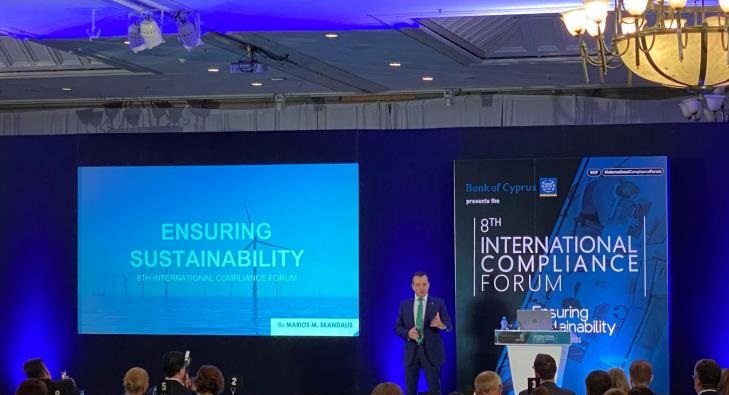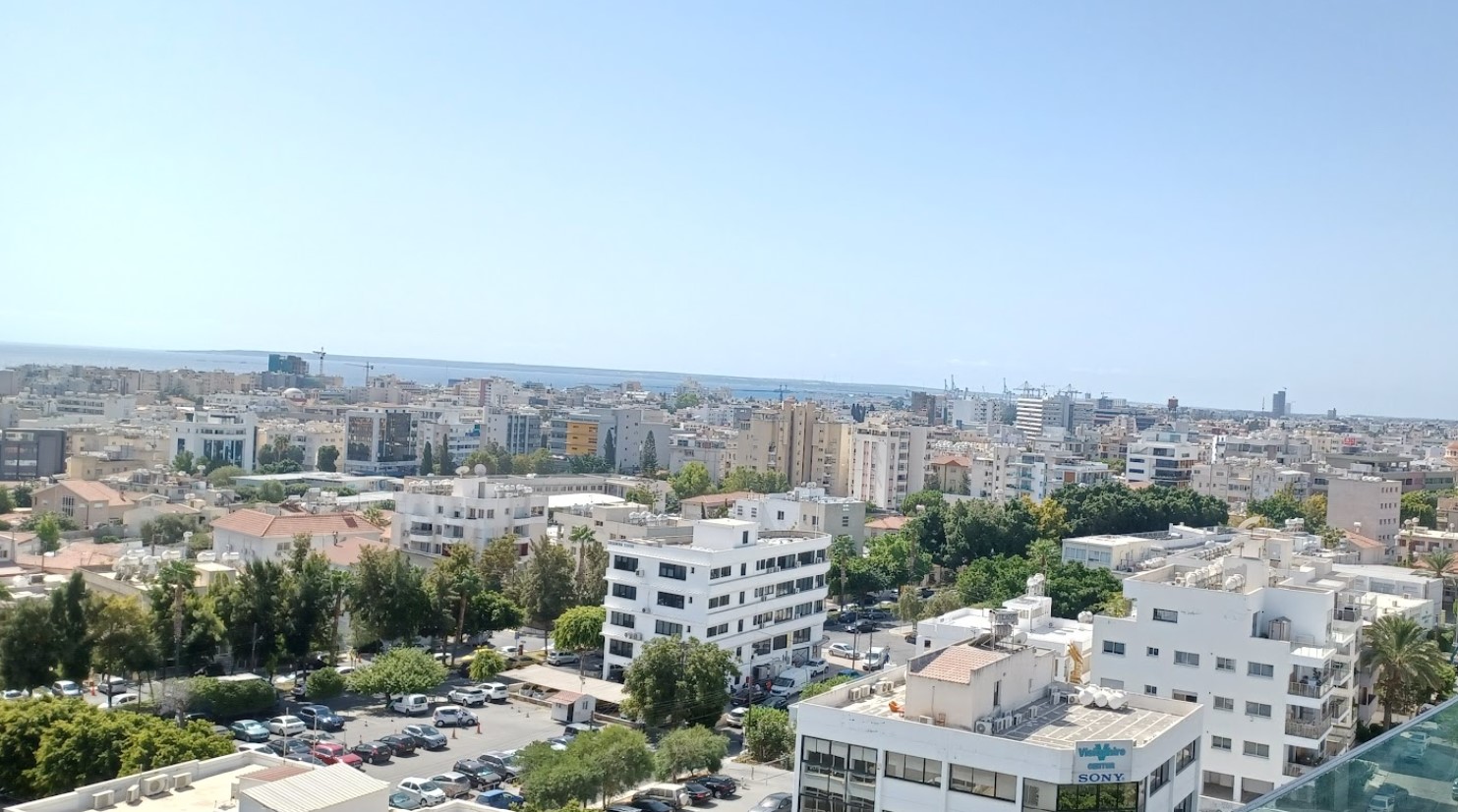Cyprus’ Gross Domestic Product (GDP) was revised to €24.01 billion at current prices for 2021 and to €21.89 billion for 2020, according to a report released on Monday by the Cyprus Statistical Service (Cystat).
Furthermore, the growth rate in real terms was estimated at a negative 4.4 per cent and a positive 6.6 per cent for the years 2020 and 2021 respectively.
According to the report, the revision of the data for the years 2010-2018 was the result of integrating the findings from the Horizontal Reservations imposed on all European Union Member States.
What is more, the service also stated that for the years 2019-2020, in addition to the findings of the Horizontal Reservations, there were revisions resulting from the finalisation of the Supply and Use Tables, as well as the integration of the final results from the annual financial surveys.
The Association of the Mediterranean Chambers of Commerce and Industry (ASCAME), a non-profit international organisation that represents the private sector of the Mediterranean, this week celebrated its 40th anniversary.
The association involves the participation of more than 300 Chambers of Commerce and Industry, including Cyprus’ Keve, and other similar entities from 23 countries on both shores of the region.
In an event where more than 1,000 representatives took part, high-level speakers from the public and private sectors congratulated the association for its achievements during this time and praised its role in uniting the region’s business world.
In his greeting, ASCAME and Alexandria Chamber of Commerce president Ahmed El Wakil said that “since 2009, together we have implemented more than 100 projects for the development of the Mediterranean, worth €300 million, with European funding reaching 80 per cent”.
El Wakil said that the association has also created more than 40 forums per sector, in the most important cities of the region, to strengthen economic and business cooperation in the Mediterranean.
“These forums have been visited in the last 15 years by over 180,000 businessmen from the Mediterranean and the rest of the world and have led to over 300,000 business meetings,” he said.
“The total trade in goods of the Mediterranean countries that are ASCAME members amounts to approximately €5.6 trillion,” he added.
Furthermore, the association’s president said that “with a combined GDP of more than €14.4 trillion, the total foreign trade of these countries represents almost 55 per cent of GDP”.
Finally, El Wakil stated that in addition to trade in goods within the area covered by ASCAME, investments between its member countries amount to approximately €1.95 trillion in total.
Bank of Cyprus’ Chief Compliance Officer Marios Skandalis used his address at the International Compliance Forum, which was held in Nicosia on Friday, to reaffirm the support that Cyprus has received in its efforts against financial crime by both the United Kingdom and the United States.
Skandalis said that this support was once again reaffirmed by the presence of government officials from both countries at the event, including Erik Woodhouse, the Deputy Assistant Secretary for the Division for Counter Threat Finance and Sanctions a the US State Department.
Woodhouse praised the efforts made by the Republic of Cyprus to combat money laundering and pointed out the intention of the US to continue and deepen its cooperation with Cyprus regarding the implementation of economic sanctions against Russia.

The International Compliance Forum was held in Nicosia
Woodhouse said that the US acknowledged “the significant and impressive work of the Republic of Cyprus to strengthen anti-money laundering regulations,” adding that it looks forward to continued progress in the coming years.
“I am proud of the EU’s strong ties with the US and the bilateral relations with the Republic of Cyprus,” he added, noting support for export controls as well as sanctions enforcement.
Moreover, in his speech, Woodhouse underlined the important role of people working in the financial sector in implementing the sanctions, with the aim of “handing Russia a strategic defeat”.
“We will continue in this direction with our partners and allies until Russia changes its attitude,” Woodhouse explained, adding that “those who do business with Russian proxies will also face sanctions”.
In addition, Woodhouse also spoke on the important role of the private sector in the implementation of sanctions, since they hinge on the freezing of bank accounts, blocking transactions and the termination of customer relations.
In terms of the sustainability of strategic choices, Woodhouse said that “the goal is to maintain the functioning of international markets, especially in terms of basic goods”, citing energy and food as examples.
Meanwhile, Skandalis’s address focused on the three pillars of sustainability, the environment, economy and society.
The three pillars, he explained, provide “solid ground for central decisions such as land use, water management and building design,” noting that this preserves natural resources and the economy, while improving living standards.
Referring specifically to the economic aspect of sustainability, Skandalis said that it is an “art of balance”, referring to the generation of economic benefit while protecting the other two aspects.
“Regulators and standard setters have demonstrated the importance of compliance in monitoring and ensuring sustainability,” Skandalis stated, stressing that it is not a question of whether we can be sustainable, but whether we choose to be.
What is more, Duncan Tessier, the director for economic crime at the United Kingdom’s Home Office, said that the most important aspect in the response of the state apparatus against money laundering and financial crime, as well as for the implementation of sanctions, is the cooperation both with international partners, such as Cyprus, as well as with the private sector.
Finally, Marcus Pleyer, who serves as the deputy director general in Germany’s Federal Ministry of Finance, congratulated the organisers of the event for making sustainability a central theme of the conference, especially in the midst of major economic and political challenges.
Pleyer stressed that partnerships and information sharing between the public and private sectors are key to combating financial crimes.
“When the world sees criminals using their malicious games to increase their financial influence and gain political power, it calls into question the rule of law and institutions, which leads to a corrupt society,” Pleyer said.
The Cyprus Stock Exchange (CSE) ended Monday, October 17 without marking any noticeable changes.
At 13:45 during the day, both the general Cyprus Stock Market Index, as well as the FTSE / CySE 20 Index, remained stable over the previous day of trading.
The total value of transactions came up to €20,048.
In terms of the sub-indexes, the main and investment firm indexes fell by 0.27 per cent and 1.89 per cent respectively. The alternative index rose by 0.46 per cent, while the hotel index remained unchanged from its previous value.
The biggest investment interest was attracted by the Bank of Cyprus (no change), the Cyprus Cement Public Company (no change), Petrolina Holdings (+0.96 per cent), and Vassiliko Cement Works Public Company Ltd (+1.56 per cent).







Click here to change your cookie preferences